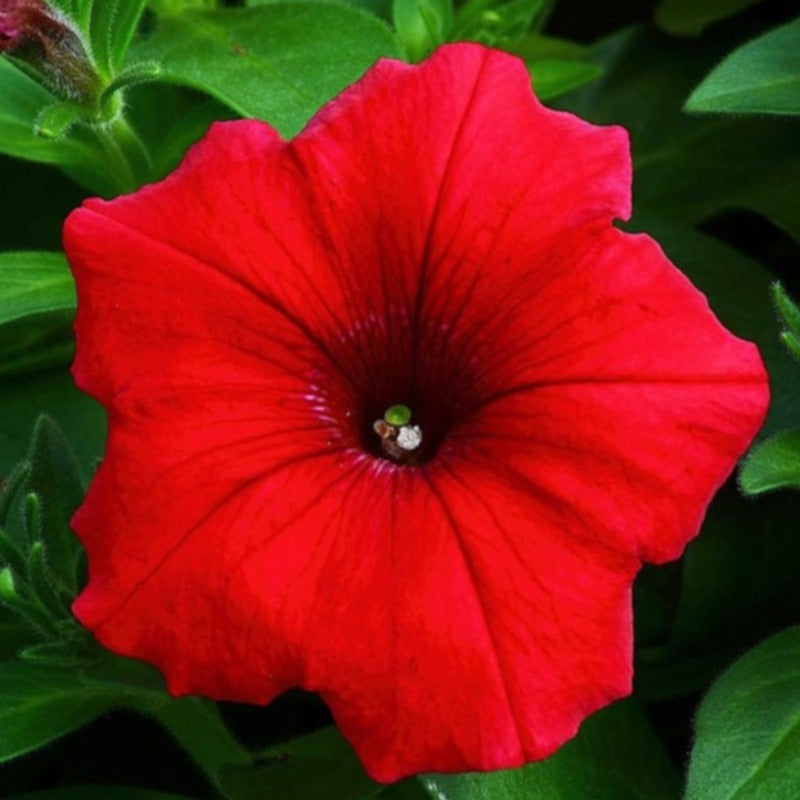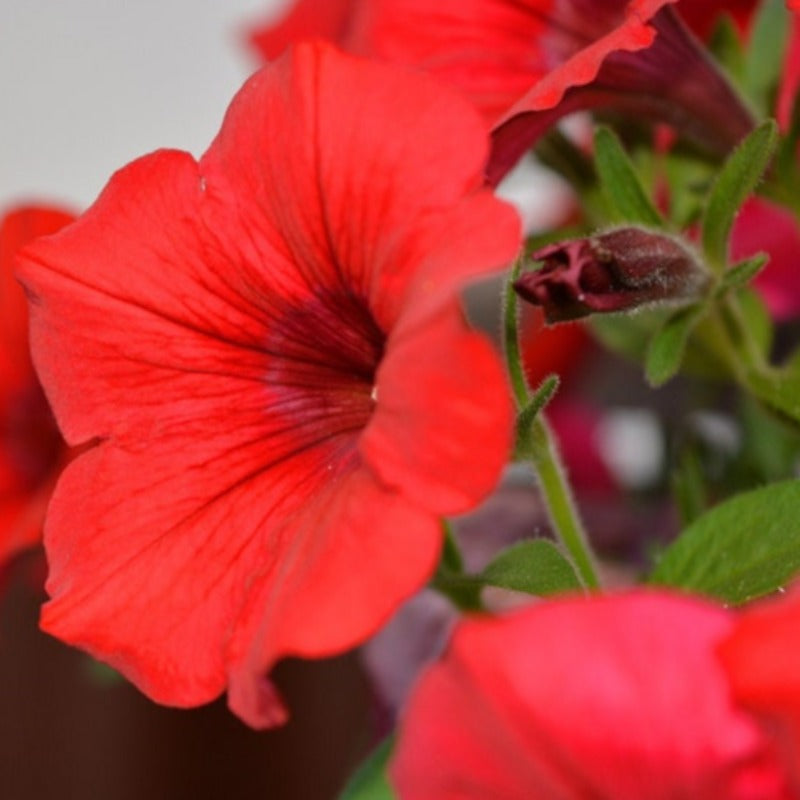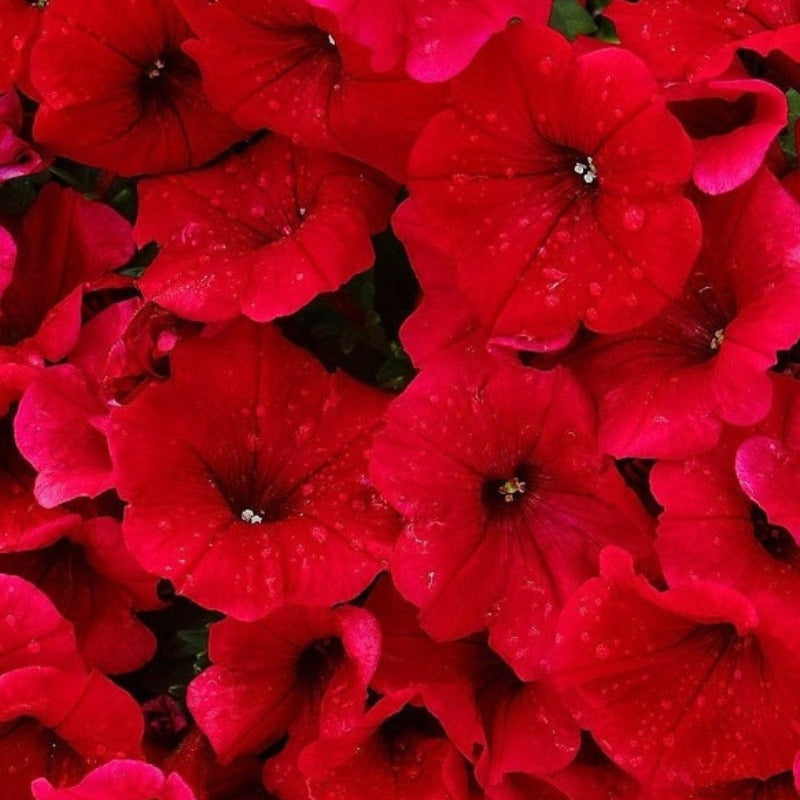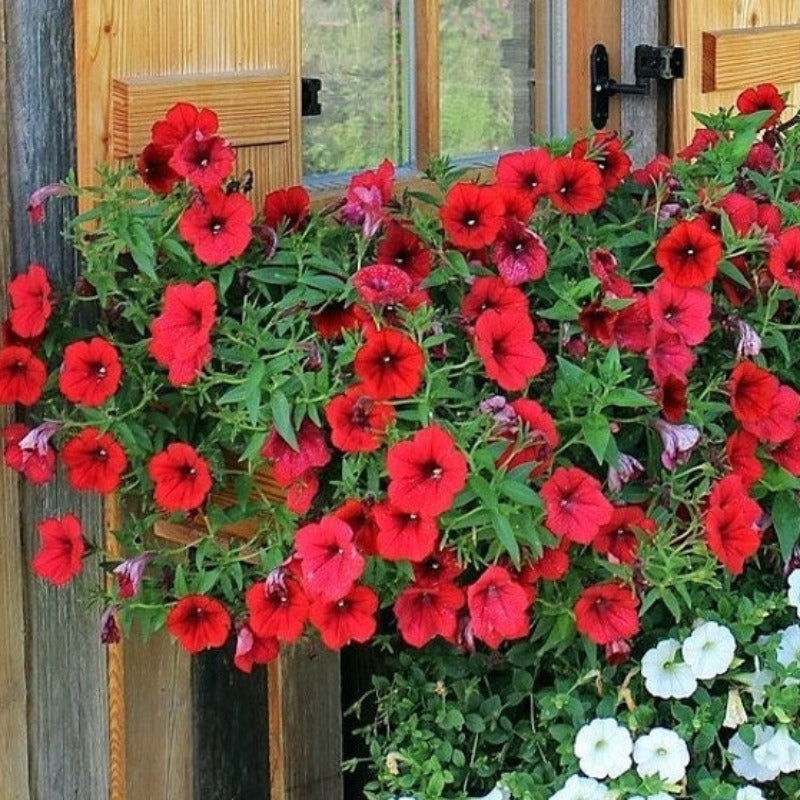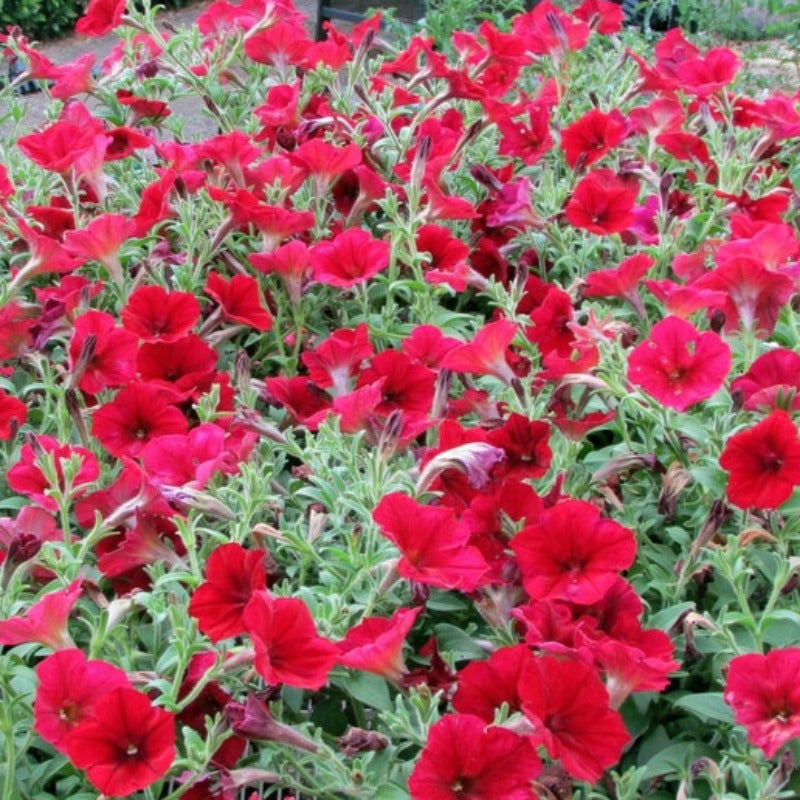- Historical context: The Petunia genus, to which the Fire Chief Petunia belongs, was first classified in the 19th century. Petunias have been popular in ornamental gardening for their vibrant colors and ease of growth.
- Geographical origination: Petunias are native to South America, particularly Argentina, Brazil, and Uruguay.
- Relevant cultural significance: Petunias have been widely cultivated and hybridized for ornamental purposes. They are often used in garden beds, hanging baskets, and as border plants.
- Time period of discovery: The Petunia genus was first described in the early 1800s, with various hybrids, including the Fire Chief variety, developed in the 20th century.
- Original habitat: Petunias originally grew in the warm, temperate regions of South America, thriving in well-drained soils and sunny locations.
- Notable historical uses: Primarily used for ornamental purposes, petunias have been a staple in gardens and public landscapes for their aesthetic appeal.
- Ideal temperature range: Petunias thrive in temperatures between 60°F to 75°F (15°C to 24°C).
- Soil type: Well-drained, fertile soil with a pH range of 6.0 to 7.0 is ideal.
- Sunlight requirements: Full sun is preferred, with at least 6 hours of direct sunlight daily.
- Watering needs: Moderate watering is required. The soil should be kept moist but not waterlogged.
- Planting season: Plant seeds indoors 10-12 weeks before the last frost date or directly outdoors after the danger of frost has passed.
- Germination time: Seeds typically germinate within 7-14 days under optimal conditions.
- Growth cycle duration: Petunias are annuals, completing their life cycle in one growing season.
- Common pests and diseases: Aphids, spider mites, and whiteflies are common pests. Diseases include powdery mildew and root rot.
- Companion planting advice: Petunias pair well with marigolds, geraniums, and other sun-loving annuals.
- Common challenges and solutions: Overwatering can lead to root rot. Ensure proper drainage and avoid waterlogged soil. Regular deadheading promotes continuous blooming.
- Nutritional values: Petunias are not typically consumed and thus have no significant nutritional value.
- Health benefits: While not used medicinally, petunias contribute to mental well-being by enhancing garden aesthetics and providing a sense of tranquility.
- Culinary uses: Petunias are not used in culinary applications.
- Medicinal uses: There are no known medicinal uses for petunias.
- Other unique advantages: Fire Chief Petunias are known for their striking red flowers, which add vibrant color to gardens and landscapes. They are easy to grow and maintain, making them a popular choice for both novice and experienced gardeners.
